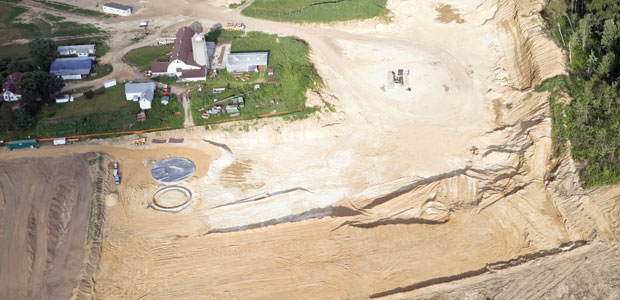Advertisement
Fracking may be linked to earthquakes
Hydraulic fracturing continues to stir up controversy in Canada. According to several news organizations (not independently verified by alive), hydraulic fracturing (or “fracking”) may be linked to numerous recent earthquakes in British Columbia’s Horn River Basin. Fracking involves pumping water and chemicals into the earth at high pressures in order to extract natural gas from … Continued

Hydraulic fracturing continues to stir up controversy in Canada.
According to several news organizations (not independently verified by alive), hydraulic fracturing (or “fracking”) may be linked to numerous recent earthquakes in British Columbia’s Horn River Basin.
Fracking involves pumping water and chemicals into the earth at high pressures in order to extract natural gas from tightly packed rock. The process breaks up the rock, which is hypothesized to promote earthquakes.
Fracking has been linked to a host of other environmental concerns such as its immense use of water and potential water contamination issues.
Nothing has been proven yet in terms of how fracking might promote earthquakes, but BC’s Oil and Gas Commission (the province’s energy regulator) has expressed interest in investigating any possible links between the 31 earthquakes near the Horn River since 2009 and the frequent fracking in the area. Although the earthquakes were small, there are concerns that they may grow.
The province of BC has also called for greater transparency of the fracking industry beginning in the New Year. The new rules will allow citizens to learn where fracking is occurring in the province, and will call for voluntary disclosure of fracking chemicals by hydraulic fracturing companies.
Many citizen groups across Canada are continuing to organize against fracking in their communities. Read all about the dangers of fracking in the article “Fracking in Canada.”





